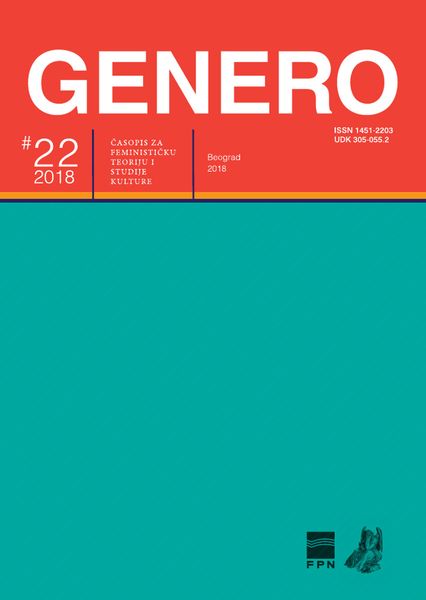MISLITI PROSTOR PROMENE – KVIR (I) FEMINISTIČKA ČITANJA PLATONOVOG POJMA HORA
Tinking the Change Spatially – Queer (and) Feminist Readings of Plato’s Chora
Author(s): Jovana TimotijevićSubject(s): Gender Studies, Social Philosophy
Published by: Centar za ženske studije & Centar za studije roda i politike, Fakultet političkih nauka, Beograd
Keywords: Plato; chora; space; politics; change; feminism; queer
Summary/Abstract: Following the basic assumption of the spatial turn in social sciences and humanities that positions space and social (re)production in a dialectical relation – social relations produce space, just as the space itself infuences the reproduction, as well the potential transformation of social relations– feminist and queer theory have also integrated category of space in their research framework, whether referring to the material space, representations of space or spatial metaphors (and fgures). Aside from spatial/geographical aspect being relevant in broad analysis of gendered power relations within existing historical and contemporary contexts, it seems just as important and potent, and this text stands on such position, to include thinking of the spatial component of the feminist and queer projects of changing dominant order – thinking about spatial confgurations that support envisioned political and social changes. One of the spatial fgures which continue to ofer fruitful and contested interpretations of its political potential represents Plato’s concept of chora (χώρα). Description of this concept in Plato’s dialogue Timaeus seems to escape unambiguous, coherent image, therefore, unsurprisingly, producing the multiplicity of readings. Tis text will provide an overview of some of the (diferent) interpretations of this concept – queer (one that Jacques Derrida provides), feminist (Elisabeth Gross) and the one that could be characterized as queer feminist interpretation (En Bergren). Although they are not necessarily mutually contrasted, but rather point towards diferent aspects of chora, this text will argue that the interpretations ofered by Derrida and Bergren represent more productive stands for thinking about radically diferent space.
Journal: Genero: časopis za feminističku teoriju i studije kulture
- Issue Year: 2018
- Issue No: 22
- Page Range: 71-85
- Page Count: 15
- Language: Serbian

